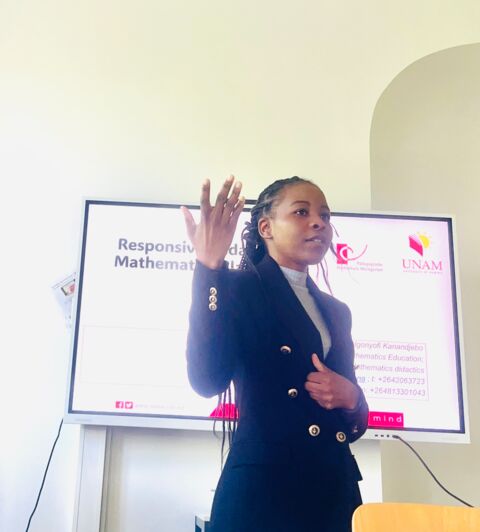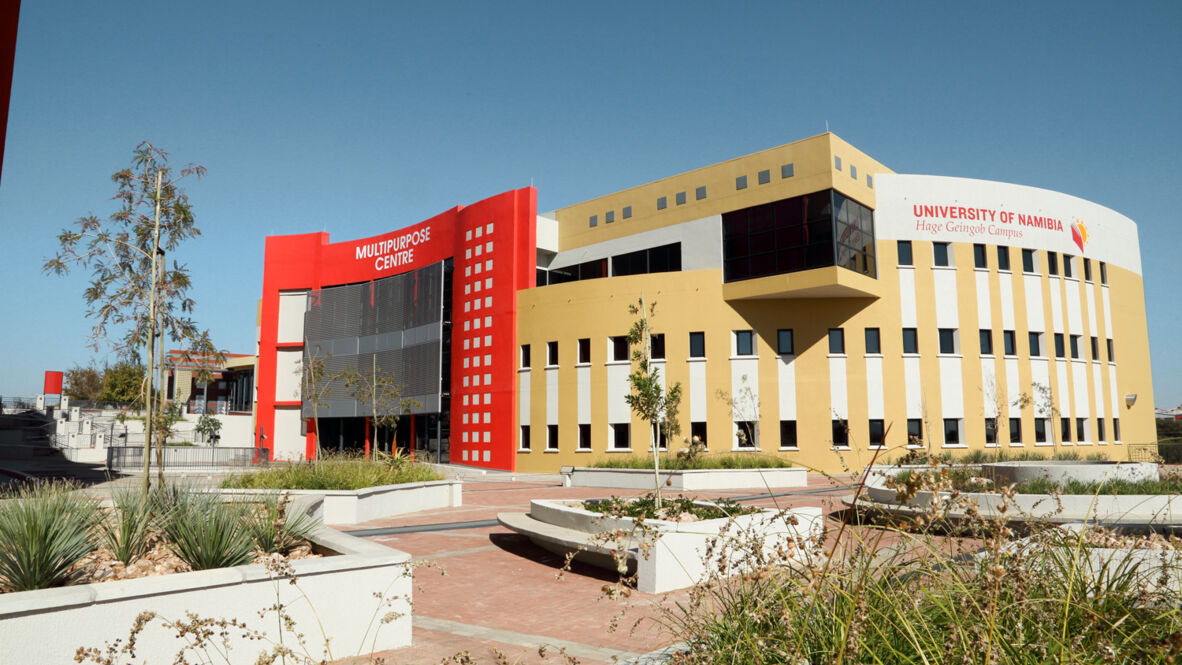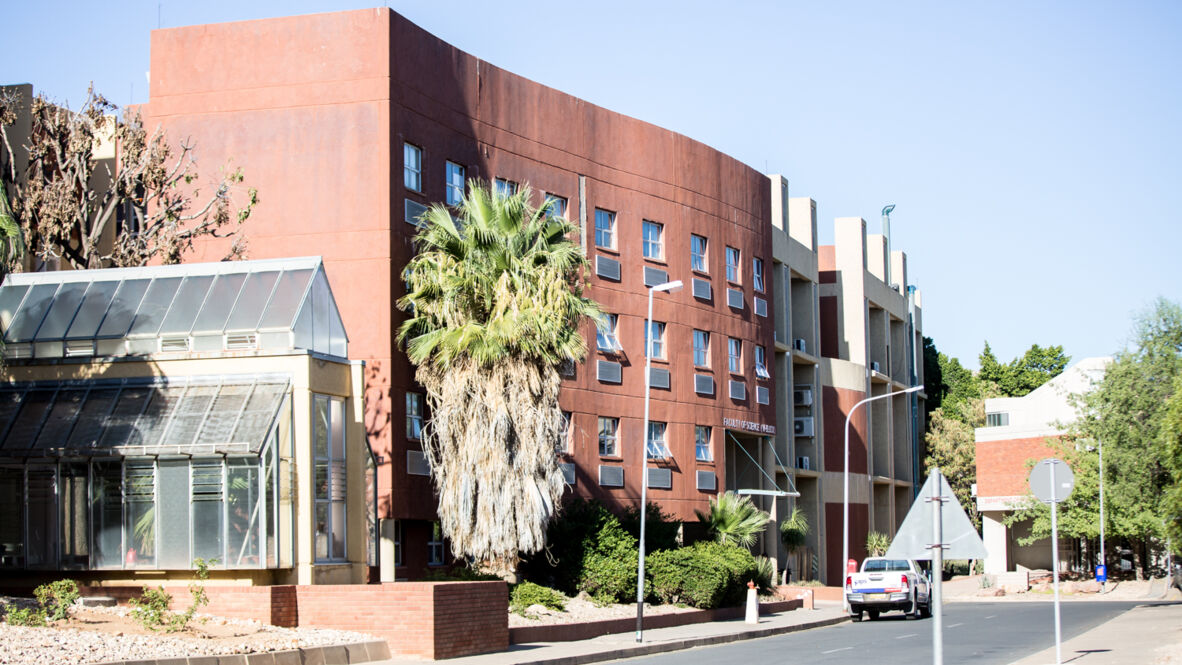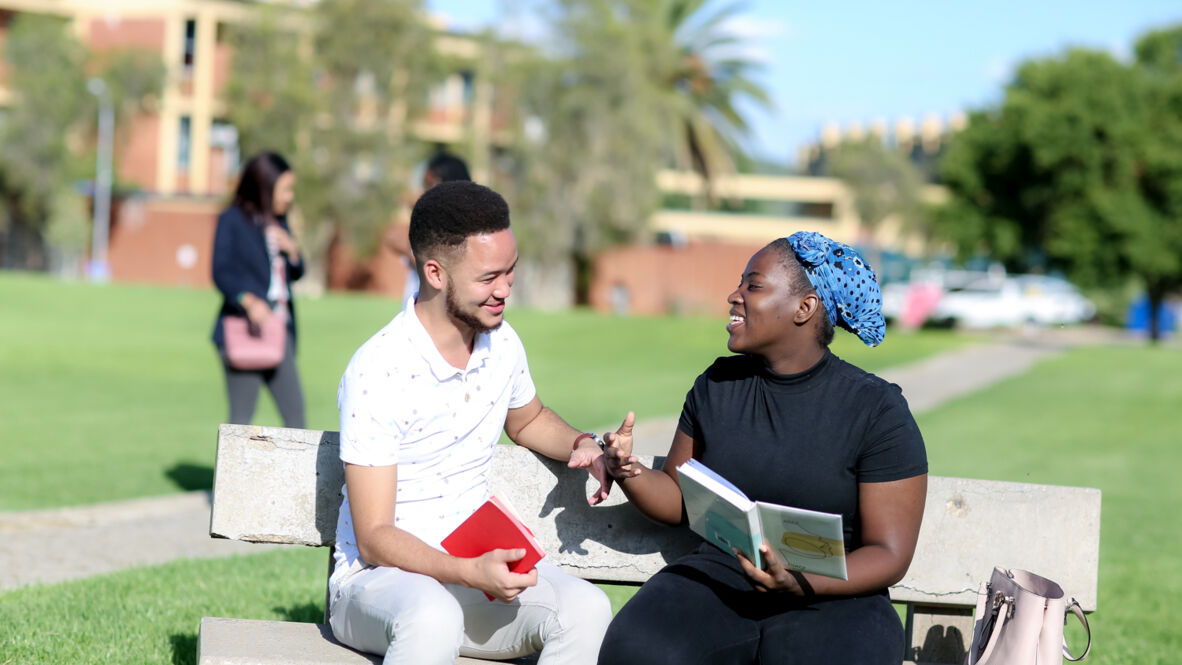She gave a lecture, visited students at schools and exchanged research ideas with fellow researchers from Weingarten. She was particularly intrigued by the natural integration of Universal Design for Learning (UDL) principles and the concept of school adoption in teacher education. In an interview, she told us about her experience in Weingarten and the Lake Constance region.
What project are you working on? Please tell us a little about it.
I’m currently working on a project focused on pedagogical responsiveness in mathematics education through teacher training as well as classroom teaching. During my time in Germany, I had the opportunity to not only engage at depth with Ellen Komm, but also with several colleagues especially Prof. Dr. Tobias Huhmann and Dr. Thomas Wiedenhorn. Together, we discussed game-based learning approach in mathematics education, and pre-service teachers’ training and professional knowledge respectively. These discussions are shaping our further research engagements which will be responsive to unique educational needs on teacher training and learners’ learning needs in our respective countries.
Are there any big differences in the way mathematics education is done in Germany compared to Namibia?
Yes, there are several notable differences, some largely due to our unique educational needs and philosophies.
What was new to you?
I was particularly intrigued by the natural integration of Universal Design for Learning (UDL) principles, where students engage in tasks through multiple pathways — visual, tactile, and collaborative. The idea of structuring lessons around learners’ autonomy and feedback cycles was refreshing. I was also intrigued by the concept of school adoption in teacher education.
Did you come across some teaching methods that you’d like to do some further research project on?
One teaching method that stood out during my visiting experience is game-based learning (GBL) for its ability to boost learner motivation and engagement, as well as for its potential to strengthen conceptual understanding and mathematical reasoning skills. I also remain interested in the school adoption model in teacher education, which may provide a strong platform for researching in real classroom contexts during pre-service teacher training. Particularly, I am interested in adapting and designing inclusive, and culturally relevant teaching and learning approaches for mathematics instruction that would be mutually beneficial to the countries considering our unique technological and pedagogical contexts.
What are your main fields of research?
My research area is Mathematics teacher professional knowledge, the strands are:
Responsive pedagogy, Technology integration, Professional development amongst others.
You also spent some time at German schools with our students. What was your impression of German schools?
The resourceful learning environment which are highly responsive to developing learners’ mathematical needs through independence and engagement.
Did you have some time to see the region of Upper Swabia and Lake Constance?
Yes, I did—and it was beautiful! One of the most memorable moments was exploring the Lake Constance as well as cruising experience on the lake. It was scenic, and therapeutic. I got to experience the region from a completely different perspective.
What did you like most?
During the visit at The University of Education Weingarten with a view of the Alps; I served as a guest lecturer and presented a seminar on responsive pedagogy in mathematics classrooms — an experience that was both intellectually enriching and professionally rewarding. The sessions explored how mathematics teachers can adapt instruction to support diverse learners. The sessions were highly interactive, and I learnt a lot. Students engaged in designing contextual differentiated strategies for heterogenous classrooms amongst others. Their thoughtful questions, reflections, and collaboration demonstrated the relevance of responsive teaching and strong commitment to inclusive practices in mathematics classrooms. Broadly, it revealed a deep awareness of equity in education and a strong readiness to apply inclusive practices across educational contexts. Through these interactions, I reaffirmed my belief that teaching is a cultural activity. Responsive mathematics teaching when grounded in inclusion and cultural awareness amongst others, transforms learning into a meaningful and empowering experience.
Equally impactful were scholarly dialogues with colleagues, particularly from the Mathematics and internship departments. Our discussions on responsive pedagogy, game-based learning, and inclusive mathematics instruction illuminated shared challenges and opportunities across contexts and emphasized the value of comparative, cross-cultural research. These exchanges, particularly around teaching approaches, teachers’ professional knowledge, and teachers’ mathematical knowledge illuminated shared challenges and opportunities across contexts underscored the mutual benefits of international collaboration in research and teacher development.
The Namibian educational context presents rich opportunities for innovative, context responsive research. I am particularly interested in further collaboration with the University of Education Weingarten on teaching, community engagement and research projects including those that will explore how successful approaches, such as game-based learning, school adoption models, can be adapted to resource-constrained and culturally diverse environments.
I am truly thankful for the opportunity and support afforded to me through the international office to learn and influence teacher education; the diverse cuisine added cultural depth to my experience too, and even activities like taking the train and bus turned into small adventures. Each moment added something meaningful to my journey as guest lecturer.
Do you have any plans of coming back to Germany someday?
Yes, definitely. I look forward to collaborate on teaching and research especially more with the internship office and Mathematics department on teaching and research; and any activity of mutual benefit to our countries.
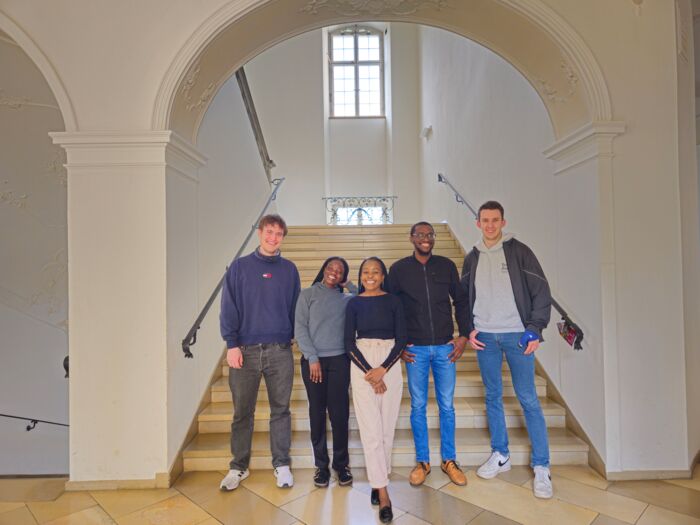
About UNAM
The University of Namibia was founded after the independence in 1992. It is a state university, situated on 12 sites all across the country. Around 30.000 students are studying at UNAM. The University of Education Weingarten has established a partnership with UNAM in 2018, which allows students-exchange, research partnerships and common projects in teaching and research.
